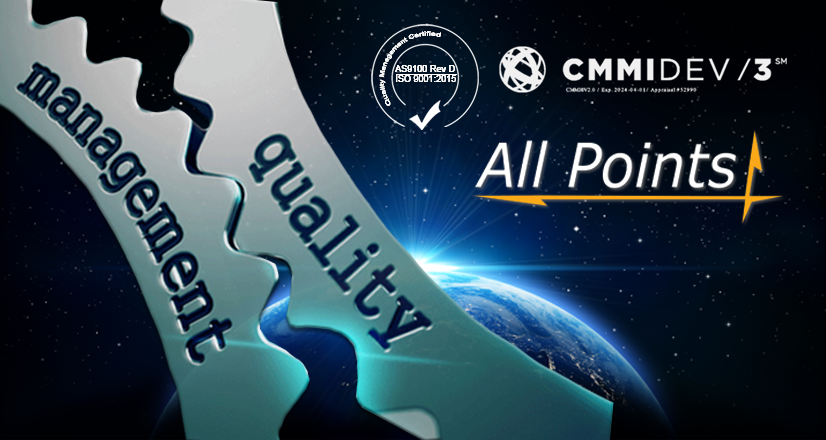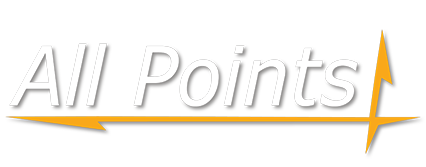
26 Oct Shorthand for Excellence in Aerospace and Software Engineering: AS9100D combined with CMMI Dev3
October 26, 2021–Aerospace and defense agencies contract with companies for years-long projects, critical to national security and safety. Because of this time commitment, the customer needs a “shorthand” to know who is dedicated and qualified to do the necessary specialized work. Through 25 years of experience working on complex logistics, IT, simulation, full life cycle software development, and engineering projects and programs, we recognize the importance of meeting the highest standards in quality and customer satisfaction on every mission we undertake.
AS9100
The aerospace industry relies on AS9100 guidance to establish quality management systems that meet the defined standards throughout the supply chain. NASA, the DoD, and the largest commercial aerospace manufacturers require this certification on their programs.
Attaining this certification demonstrates attributes such as continuous improvement, quality consistency, traceability, effective working relationships with suppliers, and evidence-based decision making, which are required by the broader ISO 9001 standard. Aerospace suppliers have additional requirements they must achieve, such as adequate purchase controls, design verification, development steps, prototyping, and measuring results through accepted metrics.
As our acumen in government contracting grew, All Points realized the importance of AS9100 certification. About years ago, after receiving our ISO9100:2008 certification the previous year, our management team decided to utilize our compliant QMS and commit to a year of aligning our processes and preparing for our initial AS9100 audit. We worked with a consultant enroute to hiring a full-time quality manager and achieved initial certification in 2014. Our AS9100 certification allowed us to compete for a wide range of large services contracts. More importantly, our thorough quality processes have increased efficiency and led to less rework.
CMMI-Dev 3
CMMI or Capability Maturity Model Integration was developed by Carnegie Mellon University at the behest of the DoD. The DoD simply needed a consistent way to assess the expertise, processes, and quality control of software engineering firms.
The ISACA (also known as the Information Systems Audit and Control Association) is the international professional organization that audits companies’ CMMI practices and classifies them from maturity levels 1 through 5. Young, small emerging companies are well served to attain levels 1 or 2. Levels 3 to 5 take significantly more structure, as they indicate a company that can move through the entire process of design, development, testing and verification, and integration of software. All Points has achieved CMMI Maturity Level 3 for development, which designates a “defined” level of software development processes. Here is an example of some of the Level 3 standards categories:
- Organizational Training
- Organizational Process Focus
- Risk Management
- Decision Analysis and Resolution
- Integrated Project Management
Attaining this level was necessary to lead projects, such as the navigational software development for the Orion spacecraft, which we have been doing successfully since 2013.
Dedication to passing a CMMI Level 3 audit takes top-down commitment. We have dedicated working groups to oversee key areas of software development and quality activities. These groups meet weekly—and sometimes daily—to get the job done. We also invest in readiness reviews by the ISACA to ensure our methods and artifacts are consistent with CMMI requirements. The certifications involve week-long audits that must be conducted every three years.
All Points is committed to making missions operable, and we know optimizing processes and procedures is essential to meeting the commitment. Holding AS9100 and CMMI-Dev 3 certifications concurrently assures that our employees understand the high level of quality we expect and have the tools to attain that level of quality, Our implementation of these standards gives our customers confidence in our commitment to excellence. We do more than just signify our commitment to aerospace engineering and software development—we’re here to deliver mission success.

